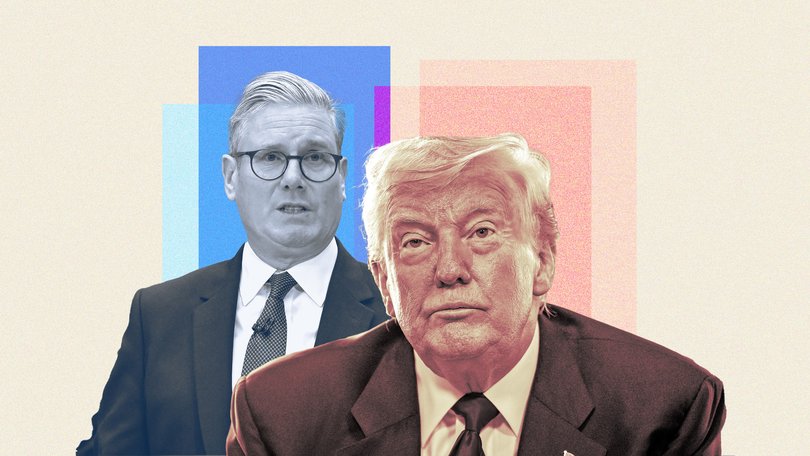EDITORIAL: UK trade deal shows Australia’s ‘wait and see’ folly
EDITORIAL: Labor decided the best way to deal with Donald Trump’s trade tempest was to batten down the hatches and let it roll over. So much for that approach.

So much for the Government’s grand “wait and see” approach on tariffs.
Despite their protestations that they were throwing everything they had at the problem behind the scenes, Labor had clearly decided the best way to deal with Donald Trump’s trade tempest was to batten down the hatches and let it roll over.
It was an approach borne out of the pessimistic attitude that there was nothing to be gained by making a fuss.
Sign up to The Nightly's newsletters.
Get the first look at the digital newspaper, curated daily stories and breaking headlines delivered to your inbox.
By continuing you agree to our Terms and Privacy Policy.As Anthony Albanese has been at pains to emphasise over recent months, with the exception of the 50 per cent tariffs on steel and aluminium products, Australian exports to the US were subject to the President’s so-called “baseline tariff” of 10 per cent.
No other nation had succeeded in securing a better deal, so the argument went that there was nothing to be gained by poking one’s head above the parapet by arguing for an exemption. Better to fly under the radar and avoid drawing attention to ourselves.
Unfortunately, in a development Blind Freddie could have seen coming, the notoriously capricious Mr Trump has decided to shift that baseline for nations which had not moved to lock in special deals.
“We are going to be setting a tariff, for essentially the rest of the world, and that’s what they’re going to pay if you want to do business in the United States,” he told reporters from his golf course in Turnberry, Scotland, at a joint press conference with UK Prime Minister Sir Keir Starmer.
What would that tariff rate be?
“I would say in the range of 15 to 20 per cent. Probably one of those two numbers.”
Suddenly 10 per cent is looking like a pretty good deal, and leaders who had moved early to lock that in as a final figure sagacious.
Mr Starmer, praised by Mr Trump as a “tough negotiator” and described as a “friend”, is among the early movers, having negotiated a 10 per cent deal back in May.
His dealmaking also secured a discount on the steel and aluminium tariff rate; from 50 per cent to 25 per cent. The British remain optimistic that it will eventually be wiped altogether.
Mr Trump also flagged a potential exemption for UK producers to threatened tariffs of up to 200 per cent on pharmaceutical imports into the US.
“You ... have a good pharmaceuticals business,” Mr Trump said.
“We’ll be dealing with you on pharmaceuticals also. And we certainly feel a lot better with your country working on pharmaceuticals for America than some of the other countries.”
That’s a statement that will be keenly noted within Australia, given drug exports to the US are a $2 billion a year business.
Why the special treatment for the UK?
“The UK is very well protected. You know why? Because I like them — that’s their ultimate protection.”
That’s a protection Australia unfortunately lacks, given Mr Albanese’s reluctance to lock in a first meeting with the President.
